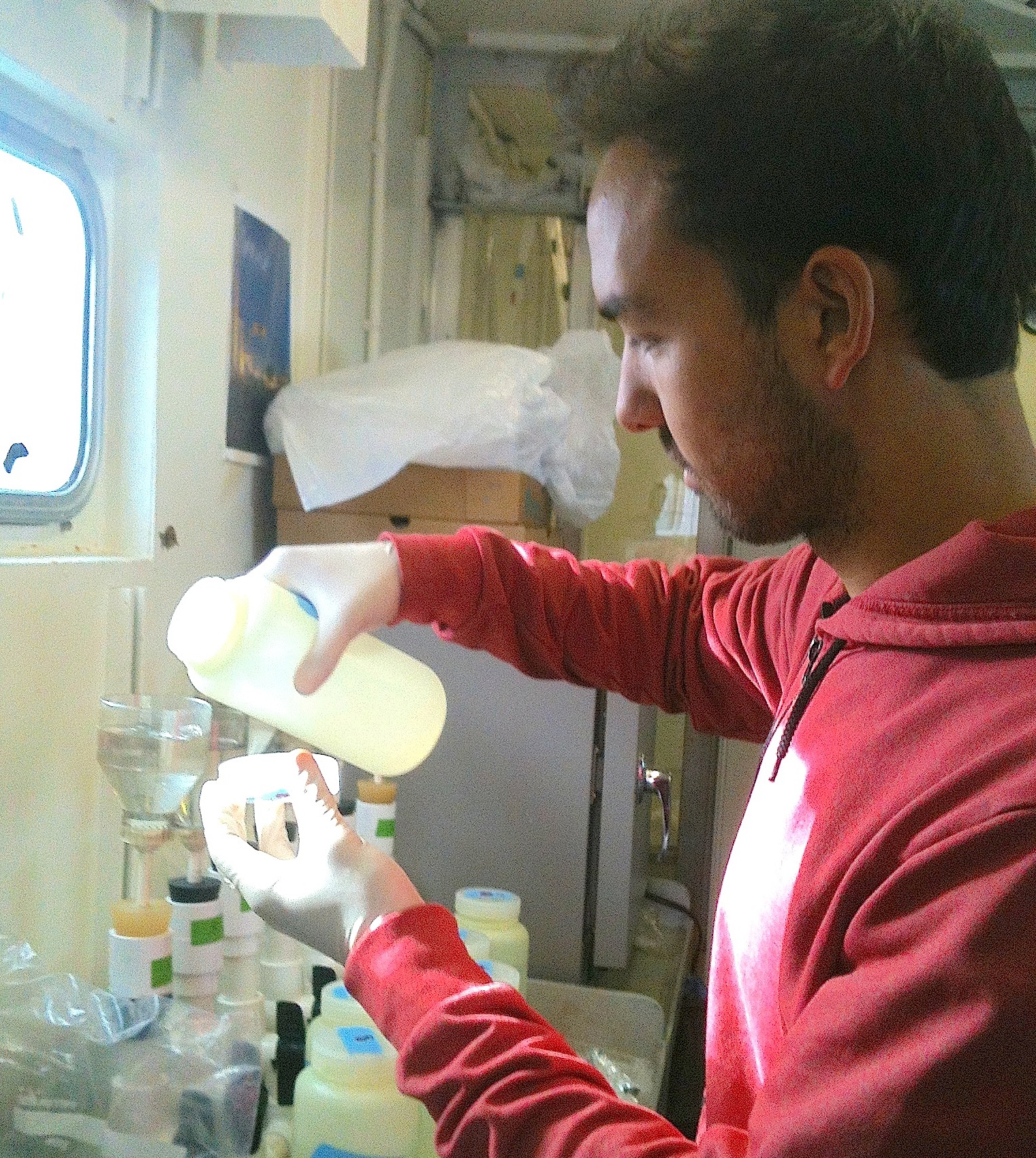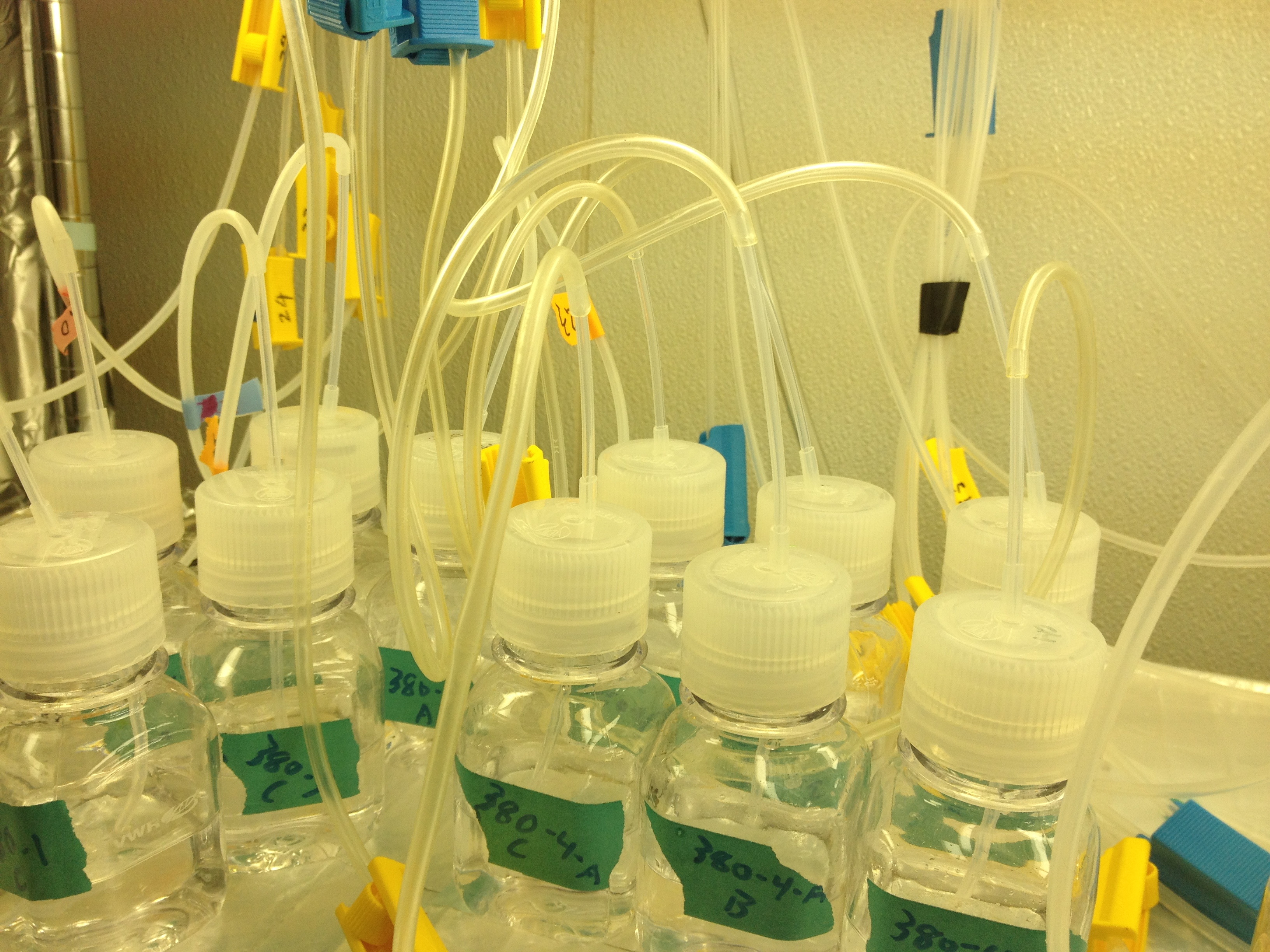By: Nathan Walworth
I study really epic bacteria. Although you typically don’t hear the adjective “epic” to describe “bacteria”, in this case, that is exactly what they are…epic.
If you look up the definition of epic, it is defined as telling a story about a hero or of exciting adventures that transcend normality. In this specific case, I study cyanobacteria who are believed to be the bacteria that generated the oxygen in our atmosphere billions of years ago. They carry out a process common to all plants where they utilize light energy from the sun to produce oxygen and metabolic energy–also known as photosynthesis. So, by a literal definition of the word “epic”, these cyanobacteria are heroes to many forms of life on this planet including humans. They probably have a few exciting adventures to speak of as well.
Today, massive populations of marine cyanobacteria regulate many important global processes and are critical components to many of the food webs we depend on for food and industry. One way to think of it is that the large terrestrial forests around the world absorb carbon dioxide and possibly contribute up to half of the oxygen in our atmosphere; photosynthetic single cells in the ocean including cyanobacteria contribute the other half.
As most people know, carbon dioxide emissions are outpacing carbon dioxide removal from the atmosphere. So, how will this excess carbon dioxide in the atmosphere affect the evolution of these cyanobacteria? And then how will their evolutionary changes in turn affect global processes, food webs, and eventually global economies? My research this summer as a WIES Sonosky Fellow tries to begin to answer these cascading questions.
To do this, we isolate important cyanobacteria from the ocean and grow them for long periods of time in bottles in the lab where we simulate future ocean conditions including increased carbon dioxide concentrations. During this incubation, we monitor changes in genetics, physiology, and chemistry. As we see these organisms evolve and adapt to the “future” ocean, we can then begin to assess how their evolutionary trajectories may begin to affect different global cycles around the world.
Constant removal of carbon dioxide is important to our atmospheric balance, and much of life depends on oxygen for normal functioning. Thus understanding the biology of cyanobacteria and how they might change in response to a changing climate is pivotal to the future of both our ecosystems and our economies.
Nathan is a 2014 Sonosky Fellow and a graduate student in the laboratory of David Hutchins, in the Marine and Environmental Biology Department at USC.


